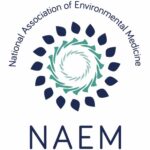New Ingredient Transparency Reveals Issue of Toxic Chemicals in Cleaning Products is Widespread
Toxic chemicals in cleaning products add to unnecessary burdens many people face from occupational exposure, pollutants in their environments, as well as social, racial and gender injustices
Fragrance ingredients used in cleaning products are some of the most problematic chemicals, linked to reproductive harm, aquatic toxicity, allergens and hormone disruption
FOR IMMEDIATE RELEASE – A new report by environmental health organization, Women’s Voices for the Earth (WVE), spotlights how toxic chemicals in cleaning products add to the health disparities and disproportionate burdens many people face from occupational exposure, pollutants in their environments, as well as social, racial and gender injustices. By accessing new ingredient information, the report, Beyond the Label: Health Impacts of Harmful Ingredients in Cleaning Products, calls attention to some of the most problematic and pervasive ingredients used in household and institutional cleaners, that have, until recently, been hidden from the general public.
“Many of the toxic chemicals we found are being disclosed for the first time in these products. We reviewed hundreds of products sold throughout the nation and found reproductive toxins, hormone disruptors and allergens used throughout brands, in varying products from detergents to carpet cleaners, and even in cleaners that market themselves as ‘green’,” said Alexandra Scranton, lead author on the report and WVE’s Director of Science and Research. “Furthermore, none of the toxic chemicals we identified in the report are essential to the efficacy of the cleaning product. This exposure is unnecessary and is adding to the widespread public health burdens that impact our quality of life.”
There is currently no federal law requiring manufacturers to list the ingredients in the cleaning products they produce. In 2017, California passed the Cleaning Product Right to Know Act (SB 258), requiring manufacturers to disclose their ingredients (including fragrance ingredients) online and on label. This law went into effect on January 1, 2020. While passed in California, this bill impacts the availability of ingredient information nationwide.
“For decades cleaning products companies have been legally allowed to hide their ingredients, even those widely recognized to cause harm to our health and our environment. This largely changed in 2020 as the result of the Cleaning Product Right to Know Act,” said Amber Garcia, Executive Director at Women’s Voices for the Earth. “Now, more than ever, we have a greater understanding of what we’re exposed to in keeping private and public spaces clean. And what we’re finding is unacceptable, especially when considering the numerous compounding health burdens that many people who use cleaning products already face.”
The overwhelming majority of those who clean for a living are women, people of color and low-income people. At the same time, these communities are more likely to experience racism, sexism, and other forms of discrimination, breathe more polluted air, and live in neighborhoods where high risk chemical and commercial hazardous waste facilities are located.
“We must do everything we can to remove the risk to essential workers and to everyone trying to make their home safe and clean from this unwarranted chemical trespass in cleaning products,” said José Bravo, Executive Director at Just Transition. “We believe this has an even greater health impact on those that live on communities of color and low income neighborhoods because of our existing environmental conditions, and the lack of access to healthcare and higher rates of COVID-19 infection.”
Impact on Workers’ Health
Several of the toxic chemicals identified in the report pose specific risks during pregnancy, which is especially concerning as cleaning products are frequently marketed to women. While gender roles and societal expectations have changed over time, a national study showed that women still complete over 70% of the housework in the average home. Studies also show that overwhelming majorities of people working as housecleaners are women and over half are Black, Hispanic or Asian American and Pacific Islander. In California, a study found housecleaners in the state are 94% are women and 87% are Latinx.
“This report highlights why it’s time to stop accepting the short and long term effects of toxic cleaning products on immigrant domestic workers as ‘just part of the job’. Housecleaners experience overexposure while cleaning private homes at much higher rates because they often clean multiple homes a week, sometimes multiple homes in a day to make ends meet and are doing it without protective equipment,” said Nancy Zúniga, Workers’ Health Program Manager at IDEPSCA. “This devaluation of immigrant women’s health is a long-standing socioeconomic injustice including unnecessary exposure to toxic ingredients extending to being excluded from health and safety protections, even as domestic workers are now under Cal/OSHA. That is why domestic workers and the California Domestic Workers Coalition are advocating for bill SB 321 that would once and for all end this historic exclusion. If signed by Governor Newsom, SB 321 would allow domestic workers and their employers to use the newly accessible information about cleaning products now available to them to create healthier work environments in private homes.”
“After years of professionally cleaning houses, I became very sick. I had a lot of back pain, joint pain and trouble breathing, but had no idea what was wrong. Eventually, it was revealed that the harmful chemicals in the cleaning products I used at work were making me sick,” said Elva Aguilar, professional house cleaner with over 15 years’ experience. “In order to avoid toxic cleaners, I started my own company, making my own cleaning products without harmful ingredients. Companies that make cleaning products must do a better job protecting the health of the people who use them professionally and personally. Even today, my body is still recovering from the toxic chemicals I was exposed to. I have zero tolerance to aromas and perfumes. All toxics make me nauseous and change my mood. I get headaches and my digestive system has to be treated with probiotics.”
“Workers tell us how they are coerced into using harsh chemicals, even while pregnant and/or when showing immediate allergic reactions. If they decline, they are threatened with losing their jobs or having their immigration status revealed. As worker advocates, we celebrate this new ingredient information but recognize that the Right to Know is a legal right that most workers, except domestic workers, already have under Cal/OSHA. We hope that this is only the beginning to safer and healthier workplaces for all immigrants, people of color,” said Zúniga.
The report also highlights particular concerns with scented cleaning products. Fragrance is a major driver in the marketing of cleaning products, which tend to have relatively simple formulas – often only distinguished from one another by how they smell. However, fragrances used in cleaning products were hiding some of the most problematic chemicals including those linked to reproductive harm, aquatic toxicity, allergens and hormone disruption. For example, fragrance chemical, Lilial, (often listed as butylphenyl methylpropional) is classified as a reproductive toxin and banned from products in the EU. Recent ingredient disclosure by companies reveals it is still used widely in the United States including laundry products, air fresheners, multipurpose cleaners, glass cleaners, and carpet deodorizers. Even more alarming, many of the heavily fragranced brands specifically marketed to the Latinx community including Fabuloso, Fragranzia, Suavitel, and Xcelente, commonly contain this reproductive toxin.
In addition to Lilial, the report also found other chemicals commonly used in cleaning products sold in the United States that are banned from cosmetic products in the EU: Fragrance chemical, HICC (hydroxyisohexyl 3-cyclohexene carboxaldehyde) and preservatives MI & MCI (methylisothiazolinone and methylchloroisothiazolinione) have been banned in the EU due to their well-known links to skin allergies.
“We now can clearly see that cleaning products companies are exposing us to unnecessary toxic chemicals. Exposure from consumer products is further compounded by what we eat, where we work, where we live, access to information, resources, quality and affordable healthcare, as well as our gender, race, and income. The industry needs to prioritize the intersecting conditions that impact health when designing safer products, and they should be accountable for their role in the cumulative impacts of exposure from cleaning products on individuals, communities and the environment. Companies can, and must, do better. And this report clearly shows them where they can start,” said Garcia.
###
The Cleaning Product Right to Know Act of 2017 (authored by Senator Ricardo Lara, D-Bell Gardens) was co-sponsored by NGOs, Breast Cancer Prevention Partners, Environmental Working Group (EWG), Women’s Voices of the Earth, and Natural Resources Defense Council (NRDC) and supported by over 100 organizations and corporations ranging from cancer prevention and clean water advocates to janitors and domestic workers, to some of the world’s largest multinational cleaning product companies.
“The Cleaning Product Right to Know Act has shined a light into the black box of once secret cleaning product ingredients. The Beyond the Label report highlights just how important this transparency is, especially for the domestic workers and janitors using these cleaning products day in and day out, 24/7. Now during COVID, when cleaning professionals, overwhelmingly women and men of color, are using more and more of these products, it is more important than ever that cleaning product companies remove toxic chemicals that are threatening the health of consumers and workers.” – Nancy Buermeyer, senior policy strategist for Breast Cancer Prevention Partners.
“Scent mixtures used in cleaner formulations were almost always kept hidden from consumers, until the Cleaning Product Right to Know Act required companies to list more of their fragrance ingredients. This increased level of ingredient disclosure in cleaning products is an important win for public health as many previously undisclosed ingredients have been linked to health harms. Some fragrance chemicals, for example, can trigger asthma and allergic reactions and, a growing body of scientific studies links some to infertility and other reproductive issues. The demand for transparency and ingredient disclosure continues to grow. As consumers learn more about the chemical ingredients in the products they use every day, they’re able to make more informed choices for themselves and their families.” – Nneka Leiba, EWG vice president for Healthy Living Science
###
ABOUT
Founded in 1995, Women’s Voices for the Earth (WVE) is a national environmental health organization that works to amplify women’s voices to eliminate toxic chemicals that harm our health and communities. Since 2007, WVE has run a sustained campaign to promote ingredient safety and ingredient disclosure in the cleaning products industry. www.womensvoices.org
The Just Transition Alliance was founded in 1997 as a coalition of environmental justice organizations and labor unions. Together with frontline workers and community members who live along the fence-line of polluting industries, we create healthy workplaces and communities. jtalliance.org
IDEPSCA’s mission is to contribute towards the transformation of creating a more humane and democratic world through the use of popular education. Specifically, our goal is to organize and educate low-income community members who want to resolve problems in their own communities. www.idepsca.org
Media Contacts
Beth Conway | Women’s Voices for the Earth
406-543-3747, bethc@womensvoices.org
José Bravo | Just Transition
619 838-6694, jose.bravo.jta@gmail.com
Nancy Zúniga | IDEPSCA (Instituto de Educacion Popular del Sur de California)
(213) 222-8468, nzuniga@idepsca.org




